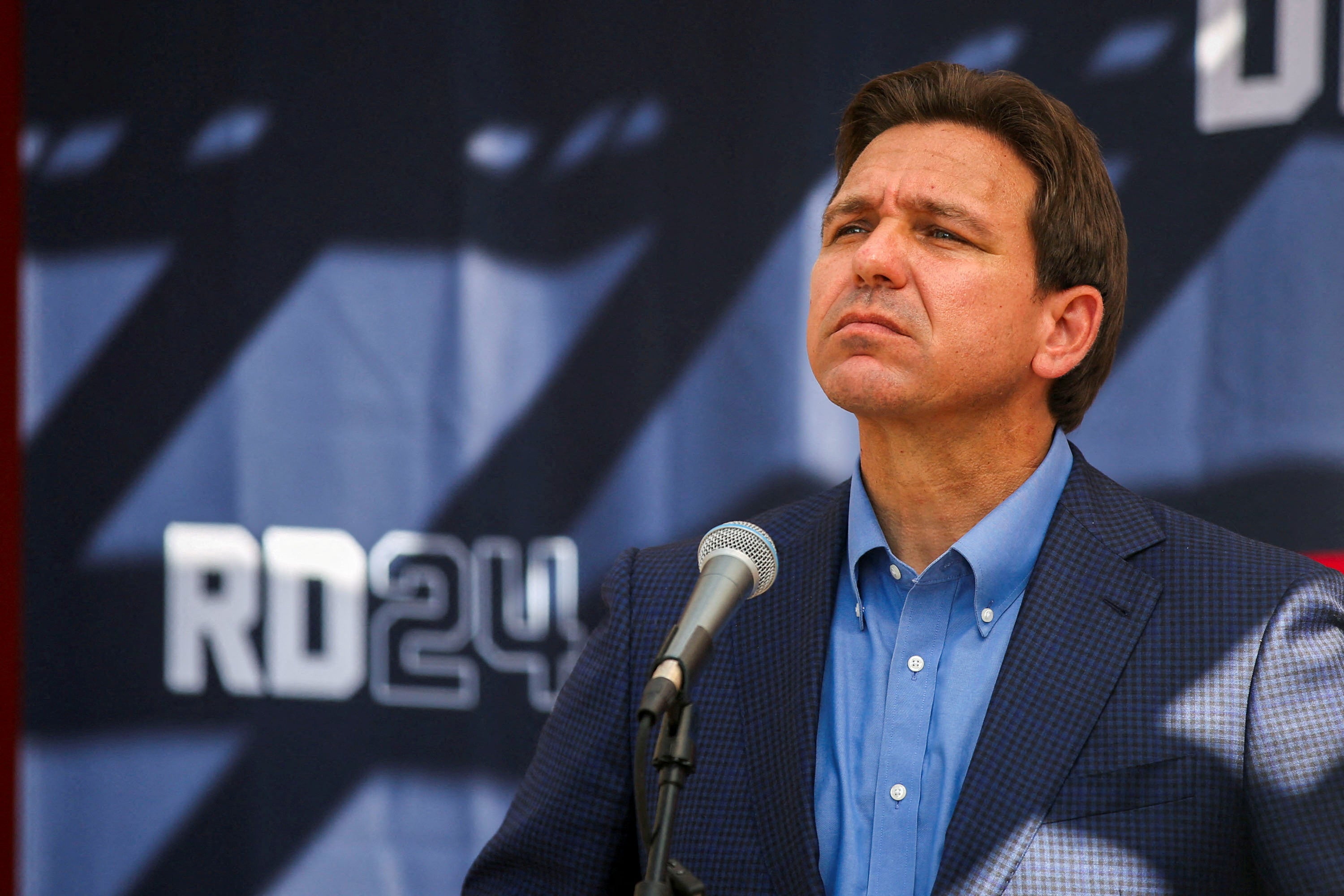‘The rest is silence’: Florida schools to censor Shakespeare over ‘raunchy’ content
‘I think the rest of the nation – no, the world, is laughing us,’ one teacher against the idea said
Your support helps us to tell the story
From reproductive rights to climate change to Big Tech, The Independent is on the ground when the story is developing. Whether it's investigating the financials of Elon Musk's pro-Trump PAC or producing our latest documentary, 'The A Word', which shines a light on the American women fighting for reproductive rights, we know how important it is to parse out the facts from the messaging.
At such a critical moment in US history, we need reporters on the ground. Your donation allows us to keep sending journalists to speak to both sides of the story.
The Independent is trusted by Americans across the entire political spectrum. And unlike many other quality news outlets, we choose not to lock Americans out of our reporting and analysis with paywalls. We believe quality journalism should be available to everyone, paid for by those who can afford it.
Your support makes all the difference.Schools in Florida are planning to only show excerpts of works by Shakespeare to children, in a bid to skirt around the “raunchy” content in his plays.
In a move that has been condemned by some teachers as “absurd”, plays including Romeo and Juliet will be taught using extracts, rather than the entire texts.
“There’s some raunchiness in Shakespeare,” reading teacher Joseph Cool, from Gaither high school in Hillsborough county, told the Tampa Bay Times. “Because that’s what sold tickets during his time.”
The publication reports that school boards believe they can educate pupils about the Bard while avoiding “anything racy or sexual”.
This news comes in the wake of the Parental Rights in Education Act – rightwing legislation commonly known as the “don’t say gay” law due to its crackdown on teaching about gender and LGBTQ+ issues.
The Parental Rights in Education Act requires that material that is sexual in nature should solely be used in classes dedicated to sexual health or reproduction.
Mr Cool added: “I think the rest of the nation – no, the world, is laughing us. Taking Shakespeare in its entirety out because the relationship between Romeo and Juliet is somehow exploiting minors is just absurd.”
He argued that students would “absolutely not” learn as much from the texts, or form as much of a connection with them, by just reading excerpts.
The switch to excerpts is, in part, an attempt to help students meet state Benchmarks for Excellent Student Thinking, with teachers giving pupils a broad range of knowledge based on one whole novel and excerpts from five to seven books or plays.
The “don’t say gay” law was established in March last year by Ron DeSantis, the rightwing Republican governor who is now running to be his party’s 2024 presidential nominee.
In July, a teacher keeping track of books that have been temporarily pulled for review by Florida’s Orange County government, revealed that titles by Shakespeare have been restricted to only 10th through 12 graders, while other popular works like The Fault in Our Stars, Into the Wild, and Catch-22 have been put on the restricted list because of sexual material.
Ariana Grande and George Takei were among the celebrities to condemn the bill in 2022, and its passage followed student walkouts across the state.

Opponents have argued that the legislation chills discussion of LGBTQ+ people and issues, and stigmatises LGBTQ+ children and families.
Actor Whoopi Goldberg said at the time that the bill is “shaming” LGBTQ+ children and “punishing” teachers who want to help them.
DeSantis also recently expanded the law to include teaching to students up to the 12th grade – the prohibition of teaching about sexual orientation and gender identity had previously applied to students up to the 3rd grade.
And he recently signed legislation that would restrict abortion after six weeks of pregnancy, which is before most people know they are pregnant.



